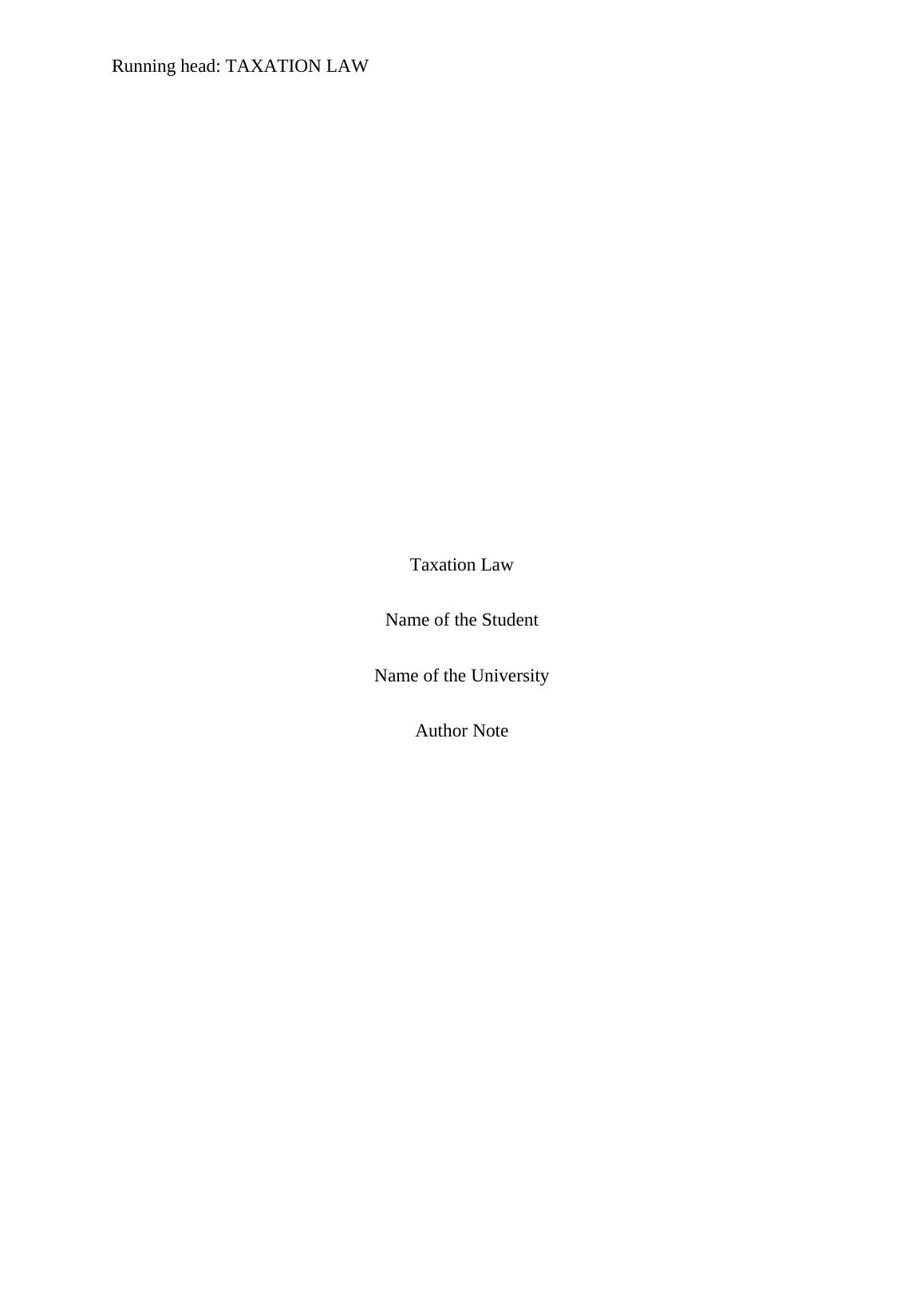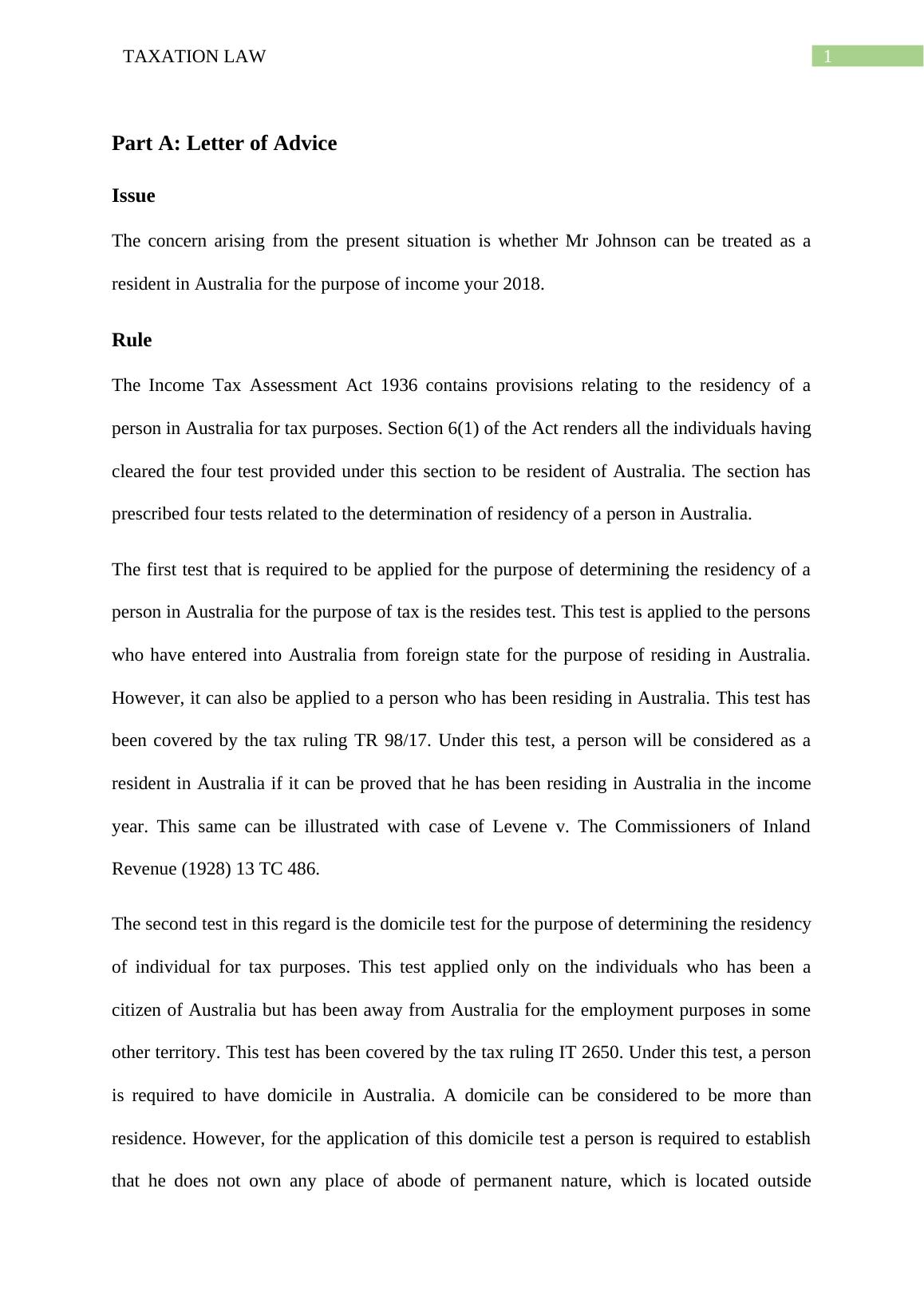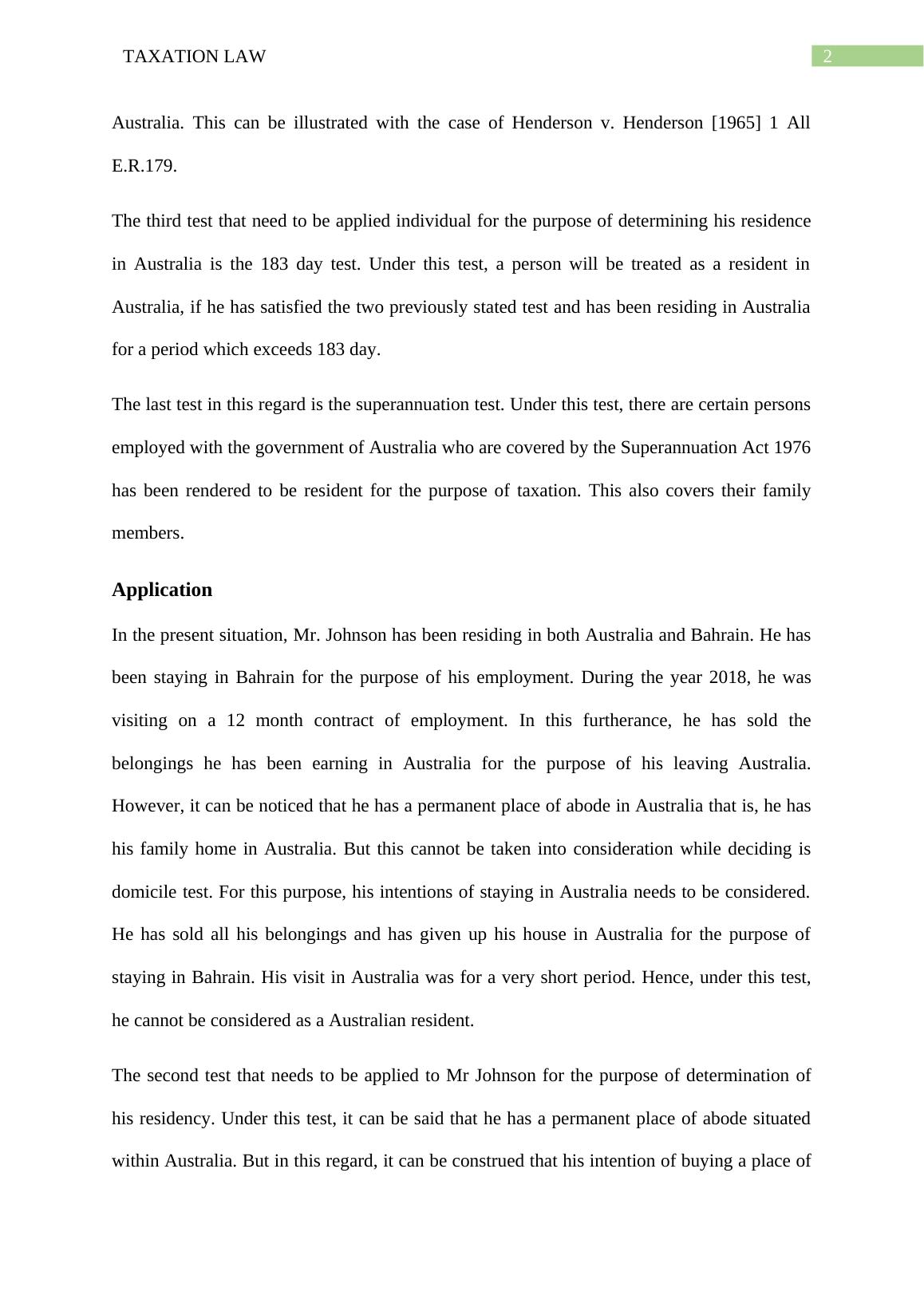Taxation Law: Residency Determination for Tax Purposes
Answer Parts A, B and C of the Tax Practice Assignment.
7 Pages1321 Words162 Views
Added on 2023-06-07
About This Document
This article discusses the determination of residency for tax purposes under Australian taxation law. It explains the four tests prescribed under the Income Tax Assessment Act 1936 and their application in determining residency. The article also provides insights into a case study and a statement of distribution. The subject is Taxation Law, and the course code is not mentioned. The content is relevant to students pursuing law courses in Australia.
Taxation Law: Residency Determination for Tax Purposes
Answer Parts A, B and C of the Tax Practice Assignment.
Added on 2023-06-07
ShareRelated Documents
End of preview
Want to access all the pages? Upload your documents or become a member.
Taxation
|7
|1151
|115
Taxation Law
|7
|1658
|97
Tax Case Study and Analysis
|18
|5298
|195
Taxation Law
|11
|1683
|89
Taxation Law - Assignment Sample
|13
|2961
|41
Tax Residency and Taxation of Income: A Case Analysis of Mr. Tom
|3
|1125
|121



